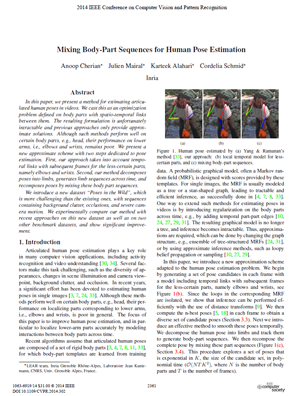Seminar on Current Works in Computer Vision
Prof. Thomas BroxComputer Vision is a very active research field with many practical applications, for instance in quality control, robotics, or driver assistance systems. The goal of Computer Vision is to imitate the flexibility and robustness of the human visual system. Research has made significant progress in recent years particularly due to deep learning. Most relevant research in Computer Vision has shifted to improving deep learning methods.
In this seminar we will take a detailed look at some of the most interesting recent works. For each paper there will be one person, who performs a more detailed investigation of a research paper and its background and who will give a presentation. The presentation is followed by a discussion with all participants about the merits and limitations of the respective paper. You will learn to read and understand contemporary research papers, to give a good oral presentation, to ask questions, and to openly discuss a research problem.
Due to the Corona crisis, the seminar will be entirely held as an online seminar via Zoom, i.e., the student presentations will be given using screen sharing and the discussion will be online as well.
|

|
Slides of the introductory lecture
Powerpoint template for your presentation (optional)
Papers:
| Date | Paper | Questions | Presenting student | Slides | Advisor |
| 25.06 | Positional encoding in networks | Questions | Leonhard Sommer | Slides | Huizhong Zhou |
| 02.07 | Video representation and reasoning | Questions | Hakan Sarp Aydemir | Slides | Philipp Schroeppel |
| 09.07 | Network training | Questions | Anupam Kakkar | Slides | Yassine Marrakchi |
| 16.07 | Self-supervised representaton learning | Questions | Saurav Shanu | Slides | Svenja Melbaum |
| 23.07 | Large-scale semi-supervised learning | Questions | Sergio Izquierdo | Slides | Anton Boehm |
| 30.07 | Large-scale transfer learning | Questions | Guilherme Miotto | Slides | Sudhanshu Mittal |
| 30.07 | Learning visual respresentation from instruction videos | Questions | Julia Guerrero | Slides | Maria A. Bravo |


